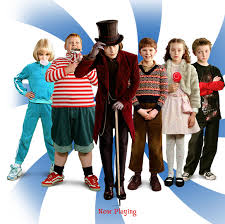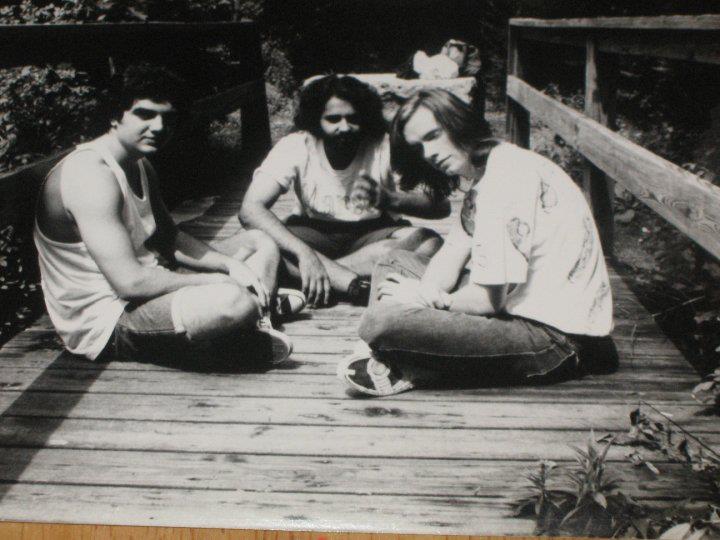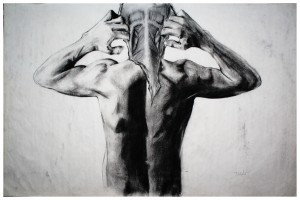Why the author treats his demon like an imaginary friend, and how it helps.
It won’t give up
It wants me dead
God damn that noise inside my head
From today’s mood music, “The Becoming,” by Trent Reznor, Nine Inch Nails:
[youtube=http://www.youtube.com/watch?v=cDfyR22u_gI&hl=en_US&fs=1&]
At last night’s OA meeting, I saw quite a few people with heavy weights pressing on their minds. I won’t share details, because these meetings are all about anonymity. But it got me thinking…
You see, for all our awful behavior, there’s one thing we addicts do exceptionally well: self-criticize. If you want to meet people who are good at focusing on their own vulnerabilities and venting shame, we are the best there is.
It doesn’t really help us, mind you. It just makes us feel worse and, in response, lose ourselves in our chosen addiction. In OA, the addiction is compulsive overeating. But it’s the same with booze and narcotics.
We often describe it as our inner demon. The demon comes to you when you are feeling low and taps on your shoulder. Then he suggests you sooth your anxieties with a pile of junk.
Many of those who suffer from mental illnesses — mine is OCD, which fuels my addictive behavior — tend to give their demon a persona.
Winston Churchill called it his Black Dog.
I call my demon The Asshole. That’s what he is, after all. He’s my dysfunctional imaginary friend.
I got the idea of making my demon an imaginary friend from my kids, both of whom have imaginary friends. I believe Sean used to call his “Rexally.” Rexally was a sperm whale, by the way.
So let me tell you about The Asshole.
He’s like one of those overbearing relatives who will constantly push food on you when you drop by for dinner.
The Asshole: “Try that slice of pizza. It’s wonderful.”
Me: “No thanks. I’m full.”
The Asshole: “Come on, try it. It’s really good.”
If I’m not in recovery, I shove the slice of pizza down my throat, followed by another 10 slices. When it comes to binge eating, I can’t have just five of something, whether it’s pizza or potato chips. I have to have them all, and when they’re gone I’ll keep pushing other things in my mouth, no matter how vile and shameful I feel two hours later.
When I am in recovery, which, thank God, I am now, I tell The Asshole: “Piss off. I’m full and got things to do.”
Facing The Asshole used to fill me with fear and anxiety. I was the weakest person in the room when he was around.
But in the years since I entered therapy for the OCD, found my Faith and started taking medication, the relationship has changed.
Now The Asshole is more like an annoying cousin; someone I keep at arm’s length. I don’t shut him out of my life completely — I can’t, really — but one day I stopped fearing him, and that made a world of difference.
He still taps my shoulder just about every day. But with the fear gone, I’m able to go about my business.
Another thing that’s changed: What he has to offer just can’t compare with the other parts of my life: My wife and kids. My writing. A good book.
But I’m not stupid. I know he’s never going to go away. He’ll always be there, lying in wait. He’s like a terrorist, that old Asshole. He may lose most days, but he keeps trying, knowing that one of these days he might just pull off the attack.
And, truth be told, I’m never more than a few minutes away from the relapse. It’s that way with anyone in recovery.
And so I must be careful.





